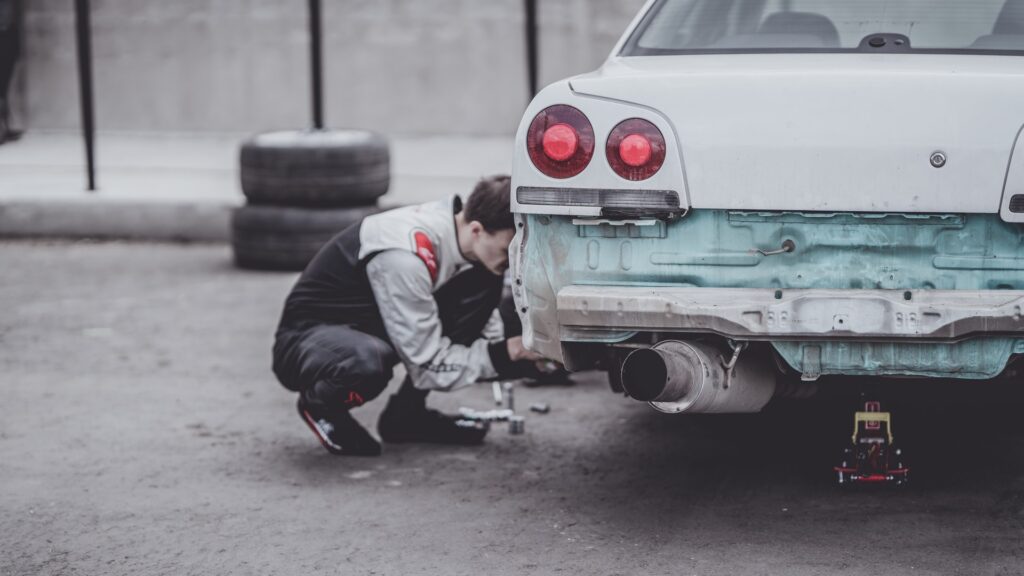
23.03.2021 •
5 easy things to do for Your car maintenance this spring
Winter can be harsh on your vehicle. The cold, the snow, the ice, the salt, the sand – it all takes a toll on your car.
Now, with the freezing months retreating, it’s the perfect time to get your car in tip-top shape for the spring and summer seasons with some basic maintenance.
Proper maintenance can help you keep your car safe, avoid accidents, prolong its life by thousands of KMs, and maintain its value. Plus, it lets you catch and sort out small issues before they turn into big problems.
As such, springtime maintenance is particularly important for anyone who makes a living by driving, especially if you’re driving your own car, as this will help you save money in the long run.
Let’s take a closer look at 5 things you should do to get your car ready for the post-winter road.
1. Give your car a thorough wash
Early spring is the perfect time to give your car a good wash – it probably hasn’t seen one since before winter. Washing by hand is recommended as this allows you to explore every nook and cranny of your vehicle and spot any chipped paint, dings, or scratches which can quickly become breeding grounds for rust. If you find any – fix ’em up before they get out of hand!
Make sure to pay extra attention to the lights and scrub away that layer of dirt that has formed over the winter. You’ll be surprised how much this can improve your visibility in the nighttime.
And don’t forget about the most neglected surface of any car – the underbody. If possible, giving it a good spray down with a pressure washer will help get rid of all the winter salt and dirt before it starts eating away at your vehicle.
2. Clean or replace your windshield wipers
Your windshield wipers have been fighting ice and fluctuating temperatures for months. Plus, having to wipe away that salt/sand and snow slush that the passing bus sprayed on your windshield also did them no good.
So check your wiper blades – if they’re simply covered in dirt and grime, wiping them down with some warm soapy water will do the trick. However, if you see that they’re torn here and there, it’s best to replace them, before the spring showers catch you off guard.
3. Check your tire pressure
Drastically changing temperatures can really mess with the tire pressure. It might not be time yet to return to summer tires, as the occasional below-freezing night can make for icy roads even well into April, so it’s essential to check your current tire pressure as the deep freeze retreats.
Over-inflated and under-inflated tires can result in some grip issues on the road. So pop on over to the nearest gas station and make sure the tire pressure is fine. Don’t forget to check the spare tire as well!
If you notice that your tires are getting worn-out, then it’s a perfect time to replace them.
4. Change the engine oil
Changing your oil doesn’t necessarily relate to seasonal shifts, but it’s something you should do regularly. The oil is what keeps your car’s engine running smoothly and, with time, the oil gets dirty and less effective. As such, refreshing the engine oil helps the car run better (lower fuel consumption) and the engine last longer.
For older cars, it used to be the norm to do an oil change every 5,000km. Nowadays, an oil change every 10,000km is perfectly fine. For full-time ride-hailing drivers, this means at least twice-yearly oil changes.
5. Test your car battery
The battery is definitely one of the more capricious parts of your car as any extreme temperatures can damage it. For instance, the winter means extra work for the car battery, as the cold slows its internal processes.
In springtime, it’s key to do a battery check-up to make sure the battery isn’t on its deathbed, particularly if you’ve kept your vehicle outside overnight for most of the winter. If your car is taking longer to start than before, that’s the first sign that you need to test and perhaps replace your car battery. Otherwise, one day, it won’t start at all.
Some other warning signs to keep a lookout for are weaker headlights and less responsive electronics.
Conclusion
Most of these you can do yourself with basic tools, but it’s always a good idea to roll your car into the shop to get a professional check-up. Automotive fluids need the occasional change and things like breaks also suffer from wear-and-tear. For ride-hailing drivers, it’s absolutely essential to keep your main working tool in top condition and minimize its depreciation.

